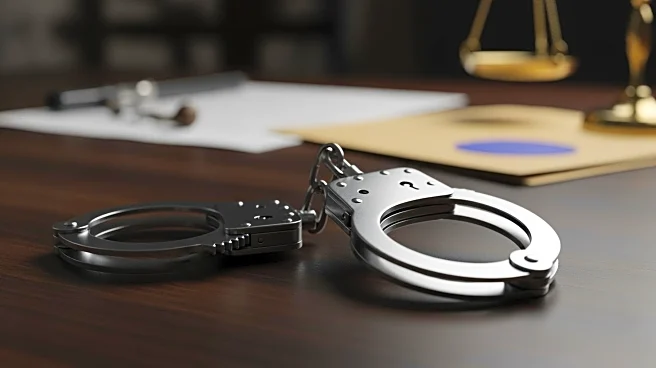What's Happening?
The police in Brazil arrested former President Jair Bolsonaro on Saturday amid fears that he might escape house arrest to avoid serving a 27-year prison sentence for a failed coup plot. Bolsonaro, who led Brazil from 2019 to 2022, was sentenced in September
after being convicted of overseeing a plan to cling to power after losing his bid for re-election. The arrest was ordered by Supreme Court Justice Alexandre de Moraes, who deemed Bolsonaro a flight risk. Bolsonaro had been wearing an ankle monitor since August, and the arrest was a preventive measure to protect his safety and maintain public order.
Why It's Important?
Bolsonaro's arrest is a significant development in Brazil's political landscape, as it underscores the judiciary's commitment to upholding the rule of law and preventing any attempts to undermine democratic processes. The arrest could have implications for Brazil's political dynamics, potentially affecting the far-right political factions and influencing public opinion. The decision to arrest him preemptively highlights the judiciary's role in maintaining order and preventing potential unrest. This move may also impact Brazil's international relations, particularly with countries that have expressed concern over Bolsonaro's actions.
What's Next?
Bolsonaro's arrest is expected to be discussed and voted on by a Supreme Court panel, which previously convicted and sentenced him. The panel's decision could determine the next steps in Bolsonaro's legal proceedings and his potential imprisonment. Additionally, the arrest may lead to increased political tensions and protests from Bolsonaro's supporters, who have been vocal in their opposition to his conviction. The situation may also prompt reactions from international leaders and organizations monitoring Brazil's political stability.
Beyond the Headlines
The arrest of Bolsonaro raises questions about the broader implications for Brazil's democracy and the potential for political polarization. The judiciary's actions may be seen as a test of Brazil's democratic institutions and their ability to handle high-profile cases involving former leaders. The situation also highlights the challenges faced by countries in balancing legal accountability with political stability, as well as the role of public demonstrations in shaping political discourse.
















